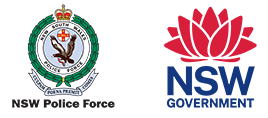Who is a missing person?
A Missing Person is defined as anyone whose whereabouts are unknown and there are genuine fears for the safely or concerns for the welfare of that person.
It is important to remember that going missing is NOT a crime. The NSW Police Force is here to ensure the safety of the public, including investigating the whereabouts of missing persons.
If you have genuine concerns for the safely and well-being of a person and are unsure of their whereabouts, attend you local Police Station to make a Missing Persons report.
How To Make A Report
You do NOT need to wait 24 hours before making a report to police. If you have concerns for the safely and welfare of someone that cannot be located, attend your local police station to make a report as soon as possible.
What police will ask you:
- The full name and DOB of the Missing Person
- What genuine concerns you have for their welfare or safety.
- When the Missing Person was last seen or contacted you.
- To provide a Physical description or a recent photograph of the Missing Person
- Details of any mobile phone numbers, social media accounts or vehicle registrations
- A list of friends and/or possible locations the Missing person frequents.
- If known, any medical information that may increase the risk to the Missing Persons. E.g. mental health, dementia or diabetes.
Police may also ask the next of kin to sign an Authority for Publicity. This can help police to locate a person quickly by publishing a photo of the Missing Person on such things as social media and news outlets.
What if I am reported missing?
If you have been reported missing it is vital to let police know that you are safe and well, as soon as possible. NSW Police put a lot of time and effort into locating Missing Persons and it is important to let them know that you are safe.
Your location and contact information can be kept confidential if you prefer. NSW Police will not disclose your details without your permission.
A Missing Person MUST be sighted by an authorised person to be deemed ‘Located’. If the Missing Person is not physically sighted, they will remain on the outstanding Missing Person list and police will continue to look for them.
An authorised person might include:
- NSW Police Force Officer
- Customs Officer
- Doctor
- School Principal
- Family and Community Services Officer
- Nursing Unit Manager
Let the authorised person know that you have been reported Missing and need them to confirm you identify and to notify Police. The Police will ask the authorised person to confirm via email that they have sighted you and that they have no current concerns for your safety or welfare.
Going Missing IS NOT A CRIME.
How can you help find someone?
To assist police in locating someone, you can;
- Search the area where the person was last seen.
- Look for any notes or clues that may have been left by the Missing Person.
- Check known locations that the Missing Persons frequents.eg shopping centres, train stations, parks.
- Speak with family or friends that may have had contact with the Missing Person.
- Secure anything that might be evidence and could be used to locate that person.
- Follow the NSW Police on Facebook or Twitter for updates on Missing Persons investigations.
If you are a member of the public and think you have information that can assist the Police in locating a Missing person, call Crime Stoppers to make a report. This information is then passed onto the investigating officers and the local Police may attend the area to conducts searches.
Social Media
When a person is reported missing, every second counts. The NSW Police Force uses social media to help locate high-risk missing people as quickly as possible.
Follow us on:
State Crime Command Podcast
The NSW Police is reaching out to the public, seeking information to resolve long standing cold cases, from missing persons investigations to homicides, domestic violence and sexual crimes.
Spotify

https://open.spotify.com/show/6Xl4mOTMoZuBdFU7hxA5h1?si=tURGeosiRYW-yEU2G50I4g
Listnr
![]()
https://listnr.com/podcasts/nsw-police-state-crime-command-investigations
Apple Podcasts

https://podcasts.apple.com/au/podcast/nsw-police-state-crime-command-investigations/id1524599320
FAQ
Do I have to wait 24 hours to report a missing person?
No. If there are genuine concerns for the safety and welfare of a person and their location is unknow, you can report to NSW Police right away. There is no need to wait any amount of time before reporting. It is often better to report a person missing as soon as possible so that Police can work to ensure their welfare. Attend you closest police station to make a report.
Can I donate my DNA to assist the NSW Police in solving Unidentified Bodies and Human Remains (UBHR) investigations?
No. In order to abide by the legislation surrounding the collection of DNA, you must be a relation to a current Missing Person.
Will my DNA be checked against the criminal DNA index?
No. It is the current legislation that, if you give DNA in a Missing Persons investigation, that DNA is never checked against any criminal investigations. These ‘Volunteer samples’ are placed on a separate DNA index and will only ever be checked against Missing Persons and UBHR cases.
Does NSW check DNA against other states?
Yes. The DNA collected in a Missing Persons or UBHR investigation is uploaded the national DNA database. This ensures that if a person goes missing in NSW and is located deceased in another State, the match can be made quickly. Again, this DNA is not checked against any criminal indexes.
Unidentified and Human Remains (UBHR)
NSW has over 371 Unidentified bodies and Human Remains (UBHR), dating back to 1961.
In 2022 over 112 reports of possible human remains were made, 37 were confirmed human and 5 remains outstanding as unidentified. The NSW Police investigate these cases with the hopes of making an identification and providing closure to family and friends.
While NSW Police hold the investigation of all UBHR case, NSW Health and Forensic Medicine also assist by providing the latest DNA technology and expert reports.
What to do if you find a possible human remain
- Do not touch the remains
- Note the location, landmarks and if possible, the GPS coordinates.
- Takes photos of the remain and the surrounding area.
- When possible and if safe to do so, call the Crime Stoppers to make a report.
The Police will attend the scene and collect the remains. They may ask you to also attend with them on the day to assist in finding to correct location.
Missing Persons Registry
The NSW Police Missing Persons Registry (MPR) was established in July 2019 as an oversighting unit for all NSW Missing Persons and Unidentified Bodies and Human Remains (UBHR) reports. The MPR consists of a team of experience detectives and analysts that review both daily reports and historical matters. The main purpose of the MPR is to provide support and advice to police working out in the community.
Missing Persons in NSW
On average 28 people go missing every day in NSW, most of which are found almost immediately. Less then 1% go on to become Long Term Missing Persons (LTMP).
The national definition of ‘Long Term’ is any person missing for over 90 days.

*The MPR has had an influx of historically reported Missing Persons, that is, persons that went missing some time ago and have only been reported recently. These cases are not included in the outstanding number per year but are still thoroughly investigated as a new report.
In 2022, 9,973 persons were reported missing and 10 remains as outstanding.
Missing Person Enquiry System
To search for a missing person, or view people who a missing, please visit the Missing Persons Enquiry System
Helpful Resources and Search Options
National Missing Persons Coordination Centre

Free call: 1800 000 634
Email: missing@afp.gov.au
Mail: PO Box 401, Canberra ACT 2601 (Australia)
Website: missingpersons.gov.au
The NMPCC, established in 2006, is a non-operational arm of the Australian Federal Police. It is mandated to reduce the impact of Missing Persons across Australia and is funded by the Federal Government.
Families and Friends of the Missing Persons Unit, Victims Services, NSW Department of Communities and Justice (FFMPU)
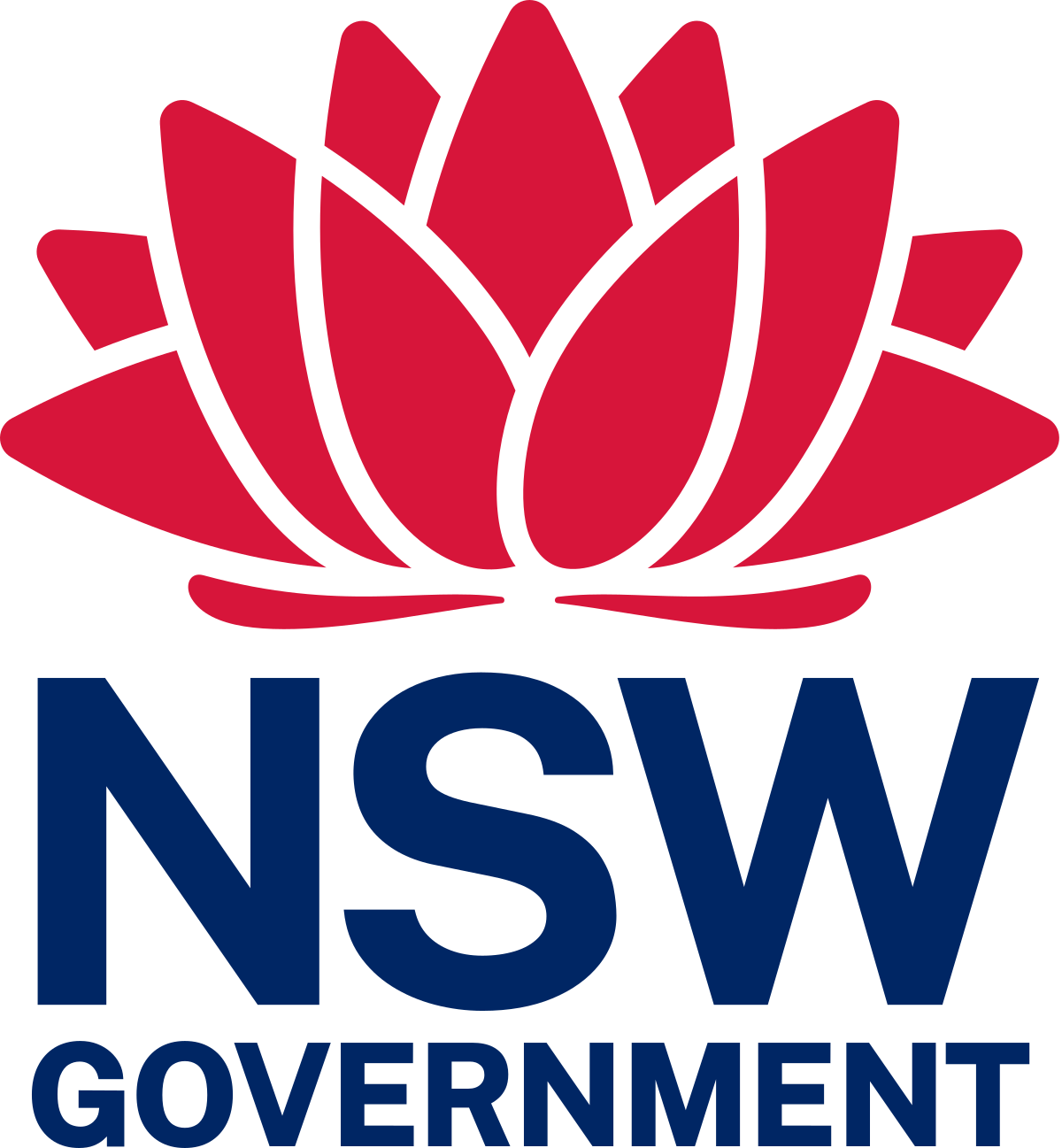
Ph: 1800 633 063
Email: ffmpu@dcj.nsw.gov.au
Website: www.missingpersons.justice.nsw.gov.au
Post: FFMPU, Victims Services, Locked Bag 5118, PARRAMATTA NSW 2124
FFMPU provides those affected by the loss of missing person with free and confidential counselling, information and support at any stage of a missing person’s investigation. Support is offered by phone, face-to-face, or online. FFMPU organises support groups and events to bring families together. They can also liaise with Law Enforcement on behalf of the family and have developed a close relationship with the MPR.
Missing Persons Advocacy Network (MPAN)
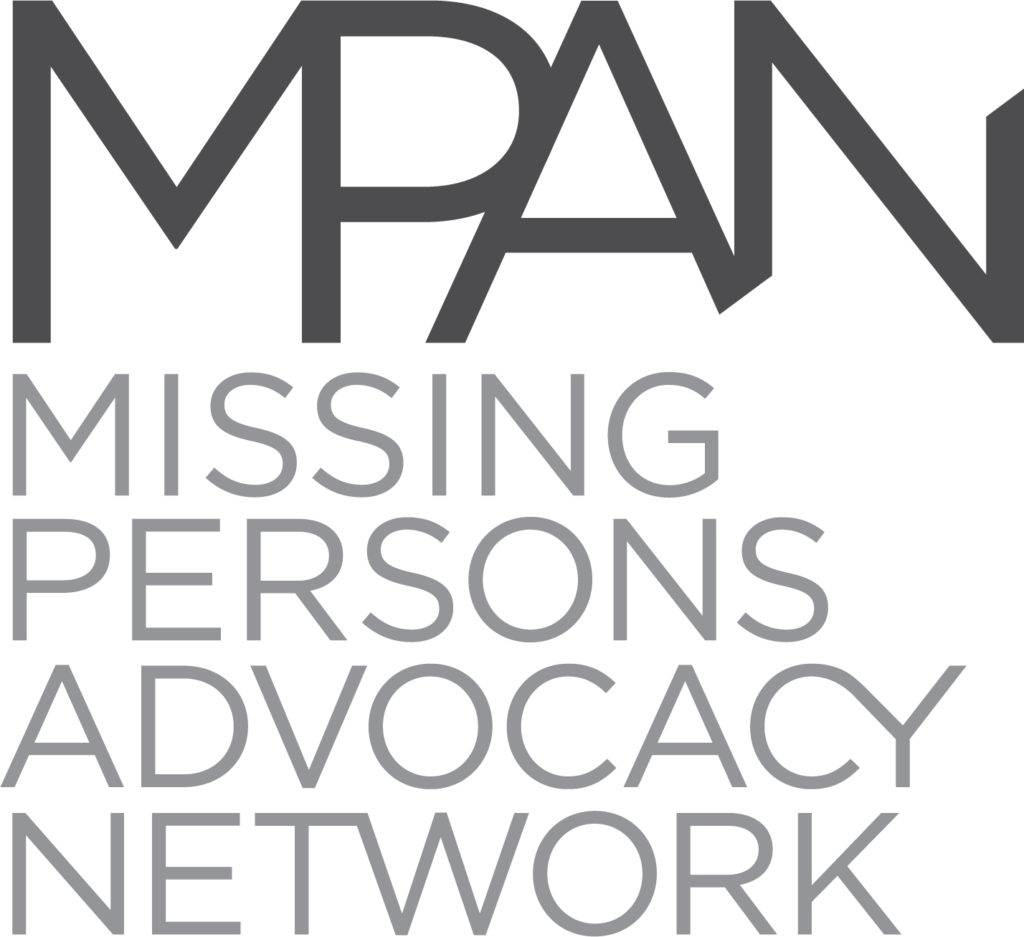
Address: Level 10, 303 Collins Street Melbourne, Victoria 3000
Email: info@mpan.com.au
Website:https://mpan.com.au
MPAN work collaboratively with Law enforcement and the community to promote and humanise Missing Persons. They provide financial and emotional assistance to families of Missing Persons, as well as guidance on how to navigate the process of searching for loved ones. MPAN is based in Victoria but works across Australia.
Dementia Australia NSW
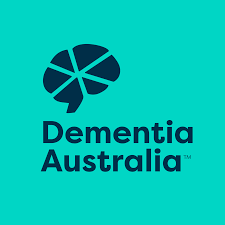
Address: Macquarie Hospital, Building 21, Cnr 120 Coxs & Norton Roads, North Ryde, NSW 2113
Ph: 1800 100 500, (02) 9805 0100
Email: nsw.admin@dementia.org.au
Website: www.dementia.org.au
Dementia Australia NSW provides a confidential support service for individuals, families and friends affected by dementia. For a full list of Dementia Australia offices and resources visit the dementia.org.au website.
Lifeline

Address: PO Box 173, Deakin, ACT 2600.
Ph: 13 11 14, (02) 6215 9400
Website: www.lifeline.org.au
Lifeline provides a national 24 hour telephone counselling and referral service.
Family Tracing
Family tracing is the term used to describe when someone has historically lost contact with a family member. The person is not missing and there are no concerns for their safety or welfare. The NSW Police do not investigate family tracing issues.
Family tracing can be done both nationally and internationally. The below links may provide more information.
Australia Red Cross Restoring Family Link (RFL)
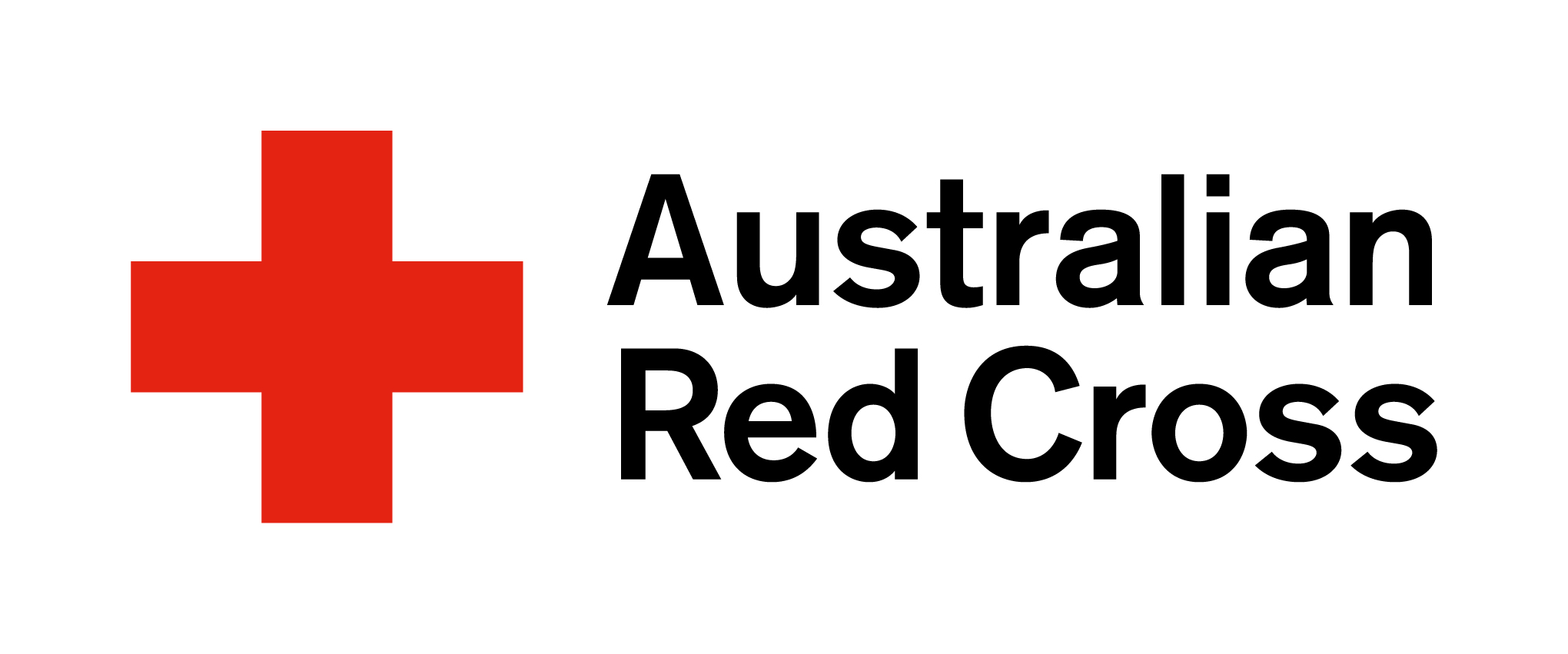
Address: level 3, 464 Kent Street, Sydney, NSW
Ph: 1300 875 199, (02) 9229 4143
Email: tracing@redcross.org.au
Website: https://familylinks.icrc.org/
The Australian Red Cross conducts worldwide searches where contact has been lost due to war, conflict, or natural disaster.
International Social Service
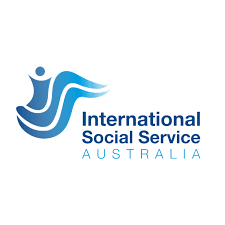
Address: Suite 501, 80 William Street, Woolloomooloo, NSW 2011
Ph: 1300 657 843
Fx: (02) 9267 0300
Email: issnsw@iss.ngo.org.au
Website: https://iss.org.au
The International Social Service traces family members separated by adoption or other legal intervention, international child abduction and voluntary or forced migration.
Link-Up (NSW) Aboriginal Corp

Address: 4/3 Central Place, Ropes Crossing NSW 2760
Ph: 1800 624 332 (toll free), (02) 9421 4700
Fx: (02) 4759 2607
Email: linkup@nsw.link-up.org.au
Website: https://linkupnsw.org.au
Provides reunion services to adult Aboriginals, separated from their families and cultures by government intervention such as adoption, fostering and institutionalisation.
NSW government – Family History Search

Website: https://www.nsw.gov.au/family-and-relationships/family-history-search
Provides free access to NSW records of births, marriages and deaths in that date back to 1788.
National Library of Australia
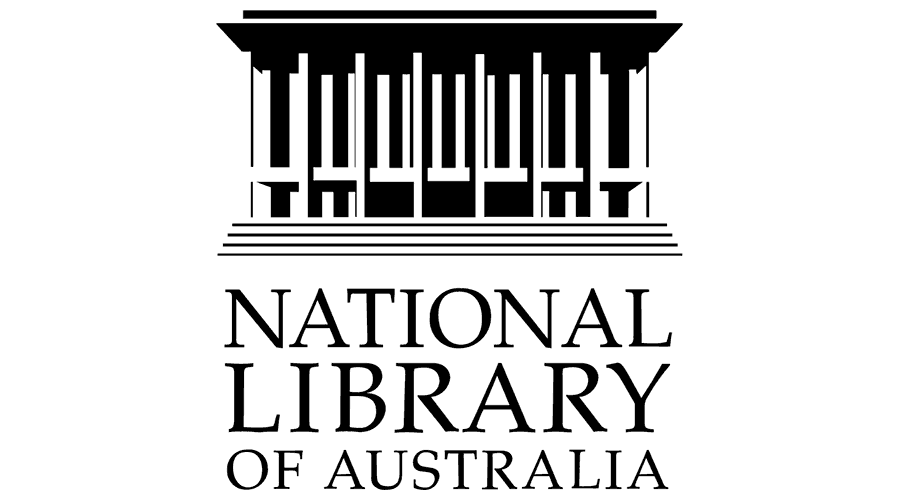
National Library of Australia
Address: Parkes Place, Canberra ACT 2600, AUSTRALIA
Phone: 61 (0)2 6262 1111
Website: https://www.nla.gov.au/research-guides/family-history/finding-family-and-friends
Provides access to multiple search options and records from across Australia.
Get Involved
Get involved

The State Emergency Service (SES) regularly assist Police with searching for Missing Persons. This network of volunteers is vital in coordinating search grids and responding to Missing Persons reports.

Local PCYC provide guidance to children and young people that need additional support. The PCYC provides community space where people can come together and enjoy recreational activities. Young People make up a large portion of repeat runaways and engaging them in community activities is a way to reduce this behaviour.
